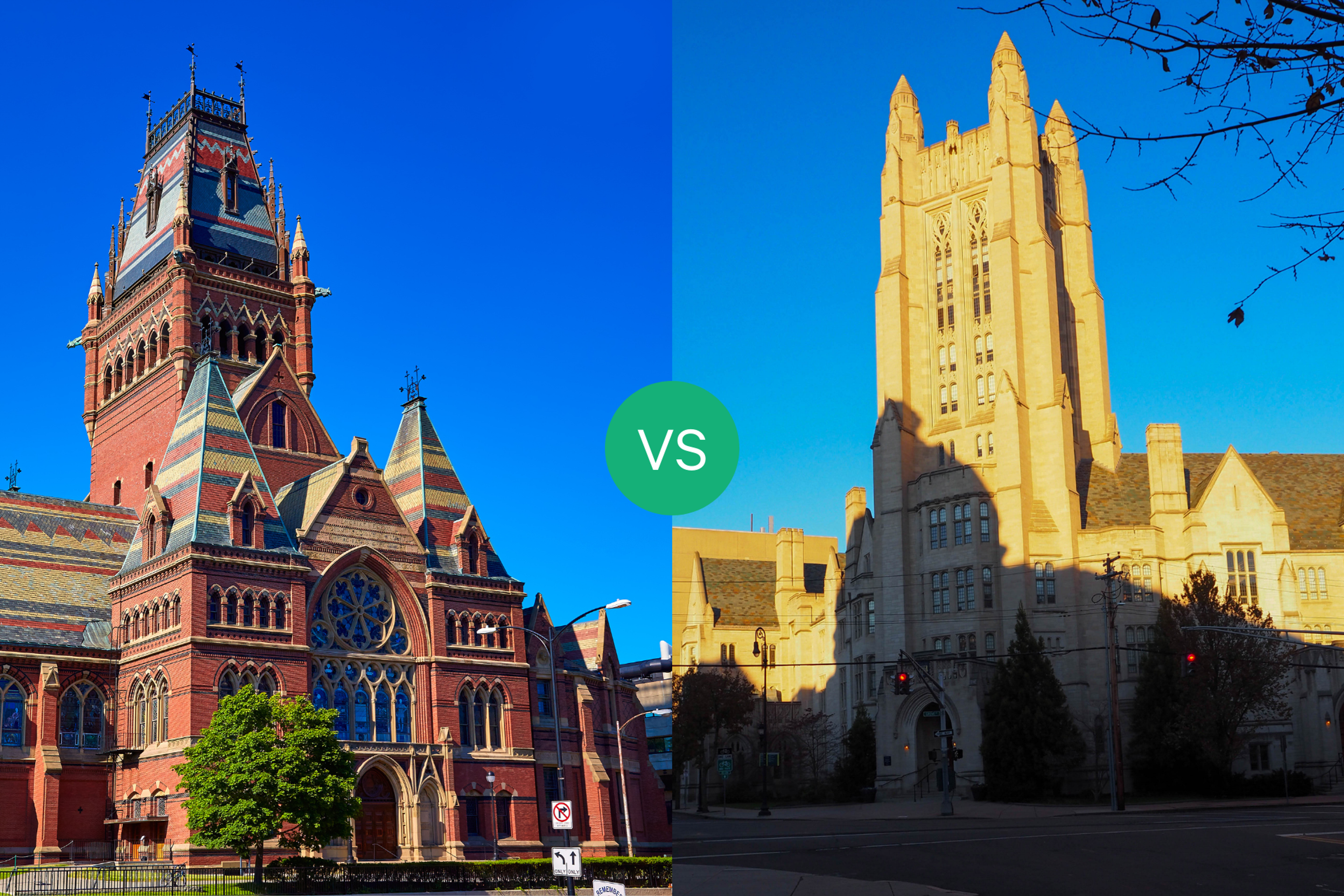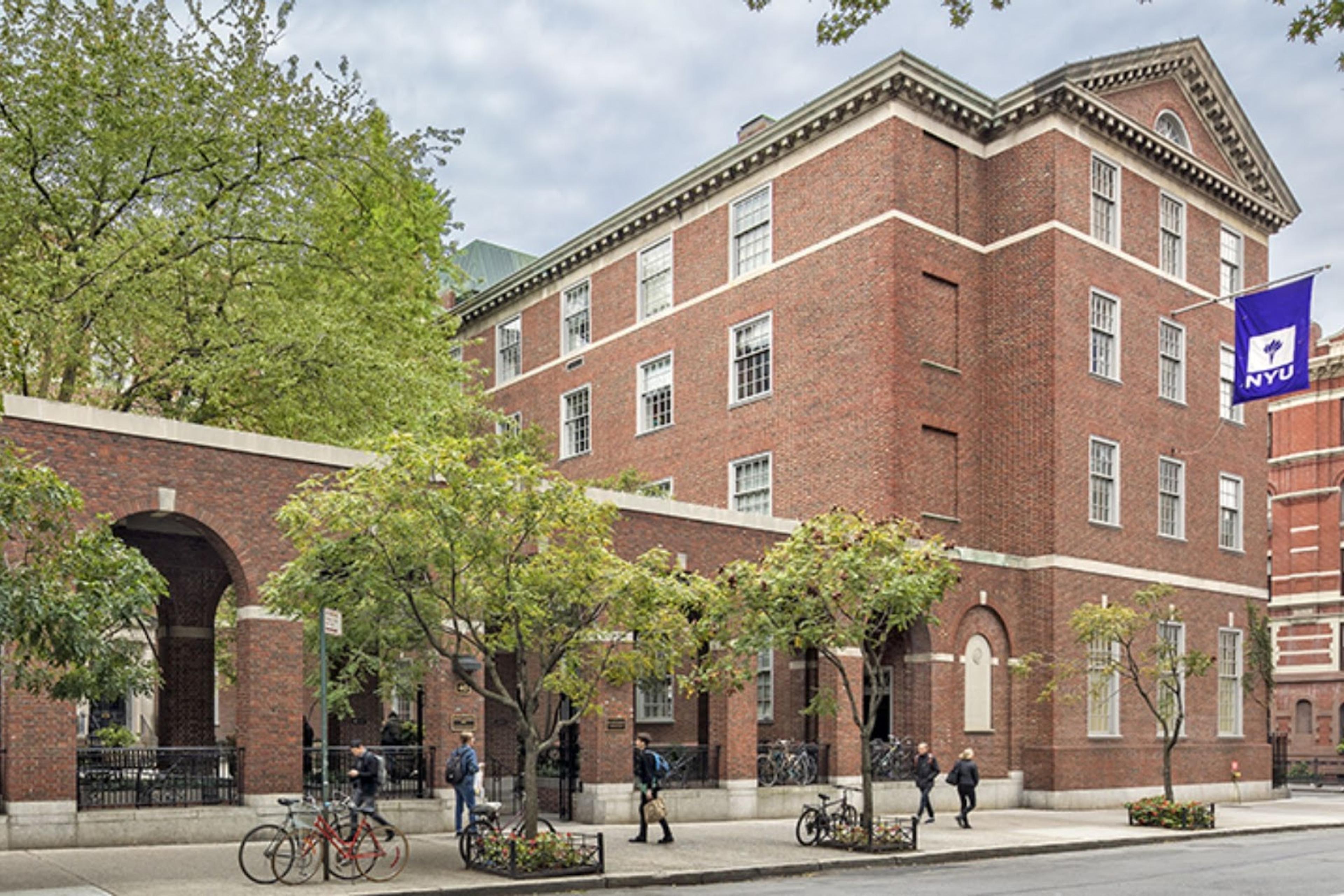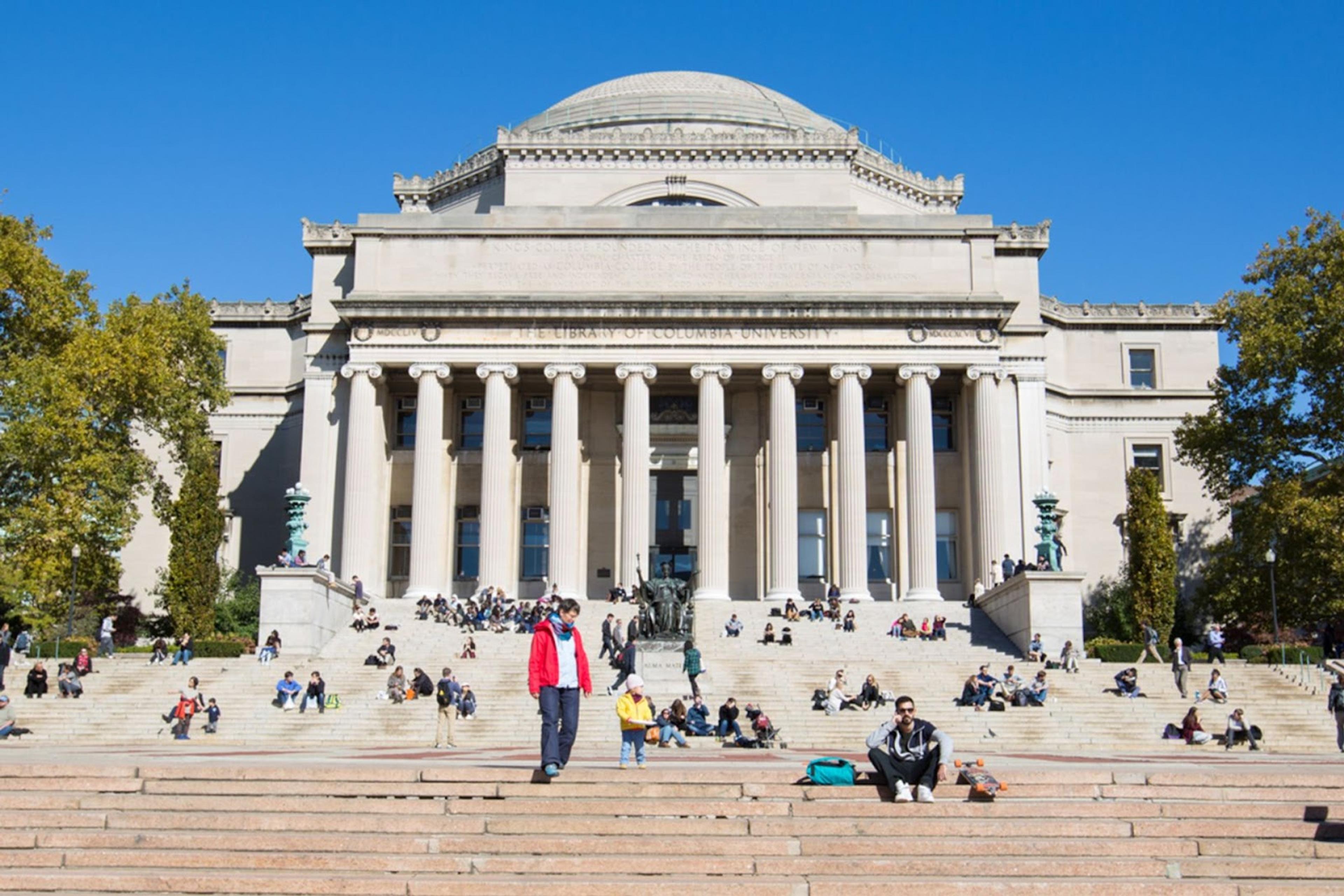Columbia Law School Vs. New York University School of Law: An In-Depth Comparison
Are you considering pursuing a law degree in New York City? Our article provides an in-depth comparison between Columbia Law School and New York University School of Law, helping you make an informed decision about which institution is the best fit for you.
Posted March 6, 2025

Table of Contents
Free Event

Featuring Indrani S.
Law School App Office Hours with a Former Stanford AdCom Member
Starting Thursday, April 17
11:30 PM UTC · 45 minutes

Featuring Indrani S.
If you're considering law school in New York City, two universities that are frequently compared are Columbia Law School and New York University School of Law. Both are highly respected law schools with excellent faculty, facilities and career prospects. Here, we will delve into the similarities and differences between these two institutions, covering all aspects from admission to alumni networks and tuition fees.
The History and Background of Columbia Law School and New York University School of Law
Columbia Law School is a prestigious Ivy League institution, established in 1858 and located in Morningside Heights, Upper Manhattan. It was the first law school founded in New York City and is one of the oldest law schools in the nation. Its history is rich, with notable alumni including Presidents Theodore and Franklin D. Roosevelt, and Supreme Court Justices Ruth Bader Ginsburg. Columbia Law School is the only law school to count more than one Supreme Court Chief Justice among its alumni.
New York University School of Law, on the other hand, was established in 1835 and is located in the heart of Greenwich Village, Lower Manhattan. It is the oldest law school in New York City and is renowned for its diversity and international opportunities. Some of its notable alumni include House Minority Leader Hakeem Jeffries and human rights lawyer Amal Clooney.
Despite their differences, both Columbia Law School and New York University School of Law are highly respected institutions that offer exceptional legal education. Columbia Law School is known for its rigorous curriculum and emphasis on legal theory, while NYU School of Law is recognized for its innovative programs and commitment to public interest law. Both schools attract top-tier faculty and students from around the world, making them leading institutions in the legal field.
The Admissions Process for Columbia Law School and New York University School of Law
Both Columbia Law School and NYU School of Law are prestigious institutions with highly selective admission processes. Prospective students must have a bachelor's degree and take either the LSAT or GRE exam. Additionally, applicants must submit academic transcripts, two letters of recommendation, and a personal statement for each application.
It is important to note that both Columbia Law School and NYU School of Law also consider factors beyond academic achievements and test scores. They also take into account extracurricular activities, work experience, and community involvement. In fact, both institutions value diversity and seek to admit students with unique backgrounds and perspectives.
Curriculum Comparison
One of the biggest differences between these two institutions lies in the curriculum they offer. Columbia Law School is known for its focus on traditional legal studies, with a heavy emphasis on legal doctrine and theory. In contrast, NYU School of Law has a more practical approach, with an emphasis on clinical programs, externships, public interest, and interdisciplinary studies.
Additionally, Columbia Law School has a mandatory first-year curriculum that includes courses in contracts, torts, criminal law, and property law, among others. At NYU School of Law, however, first-year students must also take a special course on legislation and the regulatory state alongside the traditional required courses.
Another notable difference between the two law schools is the size of their classes. Columbia Law School has a smaller student body, with a student to faculty ratio of 6.2 to 1. NYU School of Law has a slightly larger student body, with a student to faculty ratio of 6.3 to 1.
Faculty Comparison
Both Columbia Law School and NYU School of Law have highly respected faculty members who are experts in their respective fields. Columbia Law School is home to over 100 full-time faculty members, including some of the leading scholars in legal academia. NYU School of Law has a similarly impressive faculty, which includes judges, lawyers, and policymakers.
It is worth noting that the faculty at Columbia Law School is slightly more diverse, with women making up 42.3 percent of faculty and people of color 20.7 percent, compared to NYU School of Law's 33.1 and 20.3, respectively. However, NYU School of Law has been more transparent about their efforts to increase faculty diversity through new hires, of which the majority are Black.
Additionally, both Columbia Law School and NYU School of Law have faculty members who are actively engaged in legal practice and policy-making. Many of the professors at Columbia Law School have served as judges, worked in government agencies, or practiced law at top law firms. Similarly, the faculty at NYU School of Law includes lawyers who have worked on high-profile cases and policy initiatives, and who continue to shape the legal landscape through their research and advocacy.
Student Life on Campus
Both Columbia Law School and NYU School of Law are located in New York City, which means that students have access to all the cultural and social opportunities that the city has to offer. Columbia Law School is located in Morningside Heights, a quieter residential neighborhood that is close to Columbia University's main campus. In contrast, NYU School of Law is located in Greenwich Village, which has a more vibrant and lively atmosphere.
That said, both institutions have a vibrant campus life, with numerous clubs, organizations, and events that allow students to engage in various activities outside of their coursework. Additionally, both institutions have excellent library and research facilities, which enable students to conduct their research effectively.
One of the key differences between the two law schools is their approach to teaching. Columbia Law School has a more traditional approach, with a focus on doctrinal teaching and the Socratic method. In contrast, NYU School of Law has a more interdisciplinary approach, with a focus on practical skills and experiential learning. This means that students at NYU School of Law have more opportunities to engage in hands-on learning experiences, such as clinics and externships.
Career Opportunities After Graduation
Both Columbia Law School and NYU School of Law have excellent career prospects, with their graduates frequently receiving offers from top-tier law firms, government agencies, and nonprofit organizations. According to US News and World Report, NYU School of Law has a slightly better employment rate, with around 98.5 percent of its graduates finding full-time employment within 10 months of graduation, compared to Columbia Law School's employment rate of around 97.6 percent.
That said, both institutions have strong alumni networks and career services offices that provide their students with resources and opportunities to launch successful careers. With a degree from either institution, graduates can be assured of being well-prepared to enter the legal profession, regardless of their chosen field.
One factor that sets Columbia Law School apart from NYU School of Law is its location in New York City's Morningside Heights neighborhood. This location provides students with access to a wide range of legal employers, including some of the most prestigious law firms in the world. Additionally, Columbia Law School has a strong reputation in the field of international law, which can be an advantage for students interested in pursuing careers in this area.
On the other hand, NYU School of Law has a reputation for being more innovative and forward-thinking than some of its peer institutions. The school has a strong focus on interdisciplinary studies, which can be appealing to students who want to explore the intersection of law with other fields, such as business, technology, or social justice. NYU School of Law also has a robust clinical program, which allows students to gain hands-on experience working on real legal cases under the supervision of experienced attorneys.
Which Institution Has the Stronger Alumni Network?
As elite institutions, both Columbia Law School and NYU School of Law have impressive alumni networks that stretch across the globe. However, Columbia Law School boasts a slightly larger alumni network, which includes some of the most prominent figures in the legal profession, politics, and business. NYU School of Law alumni are equally successful, however, with graduates in positions of influence across many industries.
Ultimately, with either degree, graduates can expect to be part of a strong and supportive community that can provide them with valuable connections and opportunities over the course of their careers.
Tuition Fees and Scholarships
Law school is an expensive endeavor, with tuition and fees at top-tier law schools frequently exceeding $60,000 per year. At both Columbia Law School and NYU School of Law, the cost of attendance can be overwhelming for many students. However, both institutions offer generous financial aid packages and scholarships to help offset the cost of tuition.
Overall, Columbia Law School's tuition and fees are slightly higher than NYU School of Law's, totaling over $78,278 per year, compared to NYU School of Law's tuition and fees of around $76,290 per year. However, both institutions offer merit-based scholarships and need-based financial aid packages that can significantly reduce the cost of attendance for qualified students. About 65 percent of students at Columbia receive grants, with a median grant amount of $28,000. In comparison, 59 percent of students at NYU School of Law receive grants, with a median grant amount of $26,000.
Campus Comparison: Downtown vs Uptown Manhattan
When it comes to campus location, the choice ultimately depends on personal preferences and priorities. Columbia Law School's Morningside Heights neighborhood is quieter and more residential, while NYU School of Law's Greenwich Village location is livelier and more vibrant.
That said, both neighborhoods have their unique attractions and benefits, such as proximity to transportation, dining, and shopping. Ultimately, the decision between a downtown or uptown campus will come down to your personal preferences and priorities.
In conclusion, while Columbia Law School and NYU School of Law share many similarities, they each have unique qualities and strengths. Whether it is Columbia Law School's more traditional legal curriculum, or NYU School of Law's interdisciplinary approach, both institutions offer a superb legal education that prepares students for successful careers in law. Ultimately, the choice between these two institutions will depend on individual preferences, priorities, and career aspirations.










